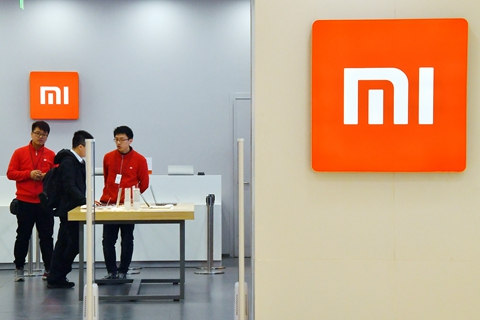Should Xiaomi Be More Than Twice as Expensive as Apple?

Investment banks valued Xiaomi Inc. as high as $94 billion ahead of the Chinese smartphone maker’s blockbuster initial public offerings in Hong Kong and the mainland as early as end-June.
Even the lowest estimate by an investment bank put Xiaomi’s value at 27 to 34 times projected 2019 earnings. By comparison, Apple Inc. – the world’s most valuable company with a market capitalization of $932 billion – has a multiple of 14.5.
The subject has raised doubts and stirred debate since the filing last month of Xiaomi’s IPO prospectus. Several analysts and fund managers told Caixin that the investment banks’ valuations exceed the market’s expectation.
Among banks that have released pre-IPO reports, Credit Suisse gave Xiaomi the highest valuation, in the range of $71 billion to $94 billion. The Swiss bank, which is working as a partner on Xiaomi’s IPO, said it based its estimate on Xiaomi’s prospects as an internet service provider.
It will be only a matter of time before Xiaomi switches the main source of its revenue from hardware sales to internet services, Credit Suisse said in its report. The company is building its own ecosystem and Xiaomi app store, which will provide a unique opportunity to make profits from internet business, Credit Suisse said.
According to its IPO prospectus, about 70% of Xiaomi’s 2017 revenue came from selling smartphones and 20% came from the Internet of Things (IoT) and a variety of lifestyle products, including smart TVs, speakers that rival the Amazon Echo, Wi-Fi routers, appliances, air and water purifiers, and lighting. Internet services accounted for only 8.6%.
In terms of revenue growth, the IoT and lifestyle products posted a yearly increase of 89%, compared with 65% for smartphones and 51% for internet services.
Credit Suisse compared Xiaomi’s future business structure to an iceberg, almost 90% of which is hidden underwater. The bank said it expected that internet business will contribute 90% of Xiaomi’s profits in the future.
JPMorgan Chase and CLSA also put Xiaomi’s valuation in the $90 billion range.
JPMorgan projected Xiaomi’s valuation between $71 billion and $92 billion and predicted that Xiaomi’s cash flow would improve significantly after 2020.
CLSA, which gave a valuation range of $80 billion to $90 billion, said it expected a 47% compound annual growth rate for Xiaomi’s revenues over the next three years.
Goldman Sachs valued Xiaomi from $70 billion to $86 billion. The bank based its estimate on Xiaomi’s huge user base and its potential global expansion.
Morgan Stanley provided the lowest estimated valuation among the banks, $65.2 billion to $84.8 billion. The bank said Xiaomi deserves to trade at a premium to global phone brands including Apple in view of its market share gains and faster growth.
According to an exchange filing, Morgan Stanley, Goldman Sachs, and CLSA will lead Xiaomi’s Hong Kong IPO while JPMorgan and Credit Suisse will also help Xiaomi with equity sales.
Such pre-IPO research reports are prepared by the banks’ equity analysts, not their investment bankers, but underwriters and sponsors often use their own research to sell the company’s growth story with potential investors before setting a formal IPO price range.
Not everyone is convinced of the growth story.
Wang Yiyan, an analyst at Hong Kong-based hedge fund eFusion Capital Ltd., said he still considers Xiaomi a smartphone company in the short term. “In the long term, it could become an e-commerce player that sells IoT products and custom-built cell phones,” Wang said.
Wang said patented technology could be the key for Xiaomi’s future development in hardware. He said Xiaomi owns several patents on its smartphone designs but no technical patent, which makes it unable to enter the U.S. market.
One analyst said most investors are expected to take profits on the debut day. Another fund manager told Caixin that many of the recently listed new economy stocks were already very expensive pre-IPO, which leaves very little profit room for institutional investors buying IPOs.

- 1Cover Story: China Carves Out a Narrow Path for Offshore Asset Tokenization
- 2Drownings Shake Chinese Enthusiasm for Travel to Russia
- 3China Business Uncovered Podcast: A $15 Billion Bitcoin Seizure and the Fall of a Cybercrime Kingpin
- 4Over Half of China’s Provinces Cut Revenue Targets
- 5Li Ka-Shing’s Port Empire Hit by Forced Takeover Amid Panama Legal Dispute
- 1Power To The People: Pintec Serves A Booming Consumer Class
- 2Largest hotel group in Europe accepts UnionPay
- 3UnionPay mobile QuickPass debuts in Hong Kong
- 4UnionPay International launches premium catering privilege U Dining Collection
- 5UnionPay International’s U Plan has covered over 1600 stores overseas






